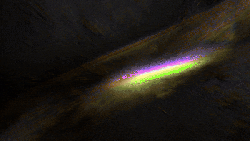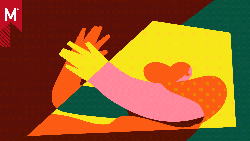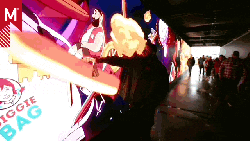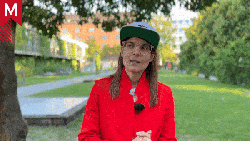Editor’s Note:
The creative industry is at a crossroads. As artificial intelligence accelerates, it brings both promise and peril, especially for the next generation of artists, designers, and storytellers just beginning their careers. In this deeply personal essay, a Gen Z creative speaks on behalf of their peers, articulating the growing anxiety they face in a world where dreams of artistry are shadowed by automation. At Motionographer, we believe these voices deserve not only to be heard but honored. Because the future of creativity doesn’t belong to machines, it belongs to the humans courageous enough to keep showing up, even when the ground beneath them is shifting.
The next generation of creatives is terrified.
I hear it every day in the innocuous questions whispered around classrooms and online spaces:
“Can we even protect our art from being scraped into AI training sets?”
“Do you think clients will still want human designers in one year?”
“Will AI replace junior artists first?”
Yet the underlying meanings are obvious. AI is a sore subject for many Gen Zers, myself included. When the word is uttered, you hear the moans and groans from all sides of the room, and that’s not without good reason.
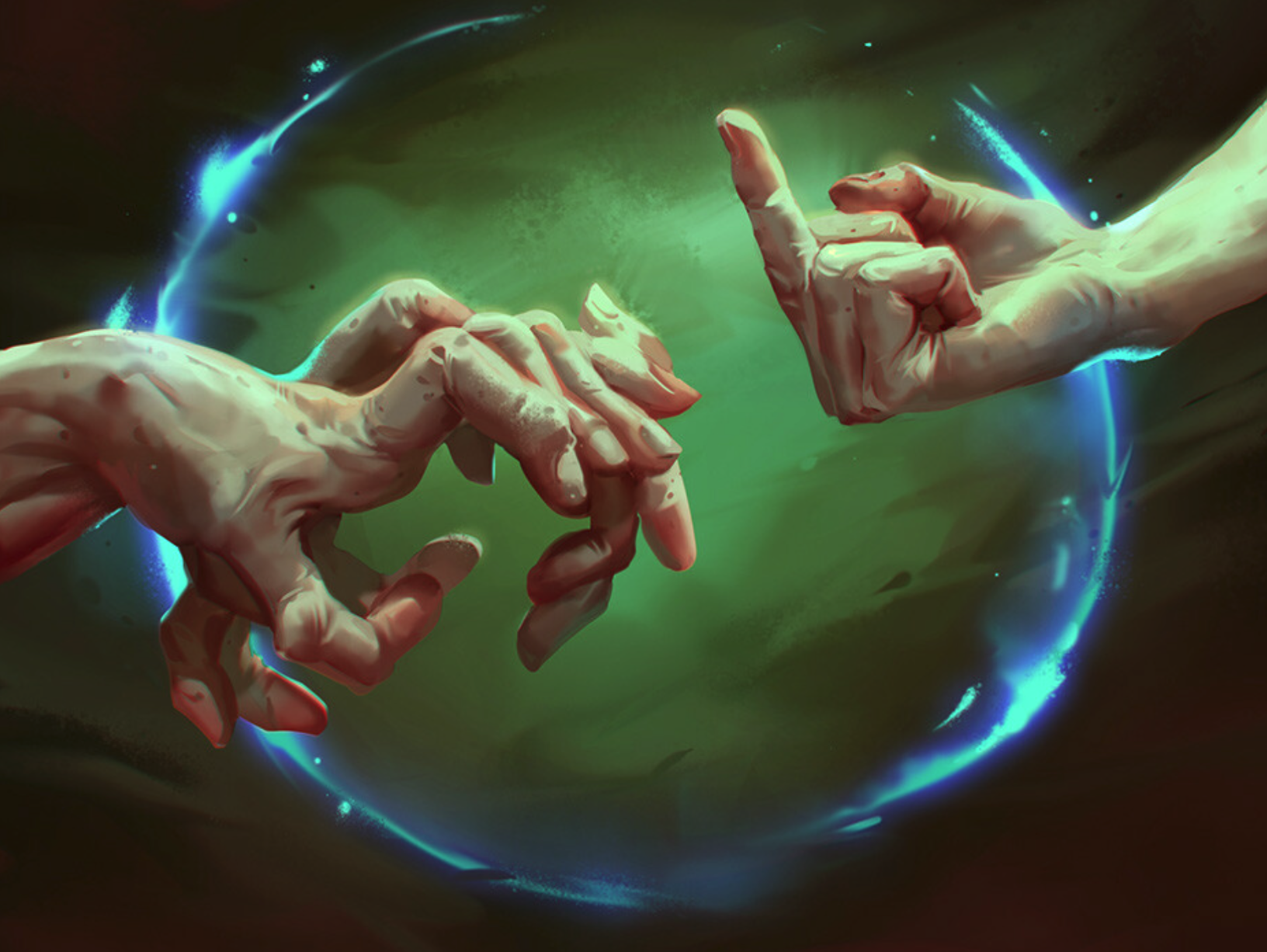
Illustration by Veronika Kozlova
From childhood, almost every creative has been constantly reminded that the arts aren’t worth their time.
We’ve been told we’re wasting our potential when we could be studying to become doctors or lawyers instead. We’re warned we’ll become poor, struggling artists with no prospects in any industry.
Authors are told they’ll never have a book deal. Animators hear theirs “isn’t even a real job.” Actors are reminded of the mere 1% who ever make it.
These are the narratives society spins around us through our formative years. Everywhere we turn, we’re reminded of the risks we take just by considering a creative industry.
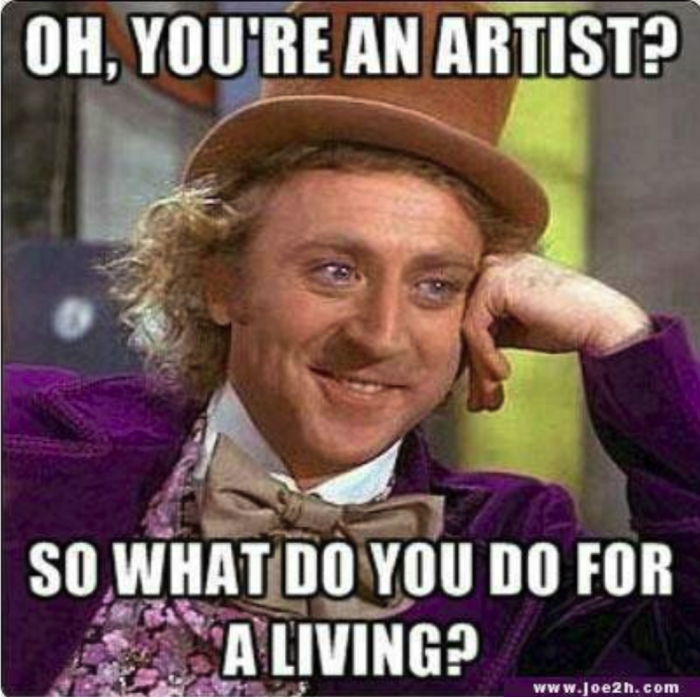
These fears get to some of us by the time we’re forced to make our college decisions. The voices inside our heads spew doubts and concerns from all directions. The fear that we’ll never be able to support ourselves post-college is very real. The “broke artist” stereotype has become a more and more likely reality as time passes.
We see an influx of people trying to enter our industries, and the limited positions available.
So people pivot from painters to doctors, and those who don’t entirely leave the creative sphere choose concentrations in graphic design or something society deems more “practical.” They sacrifice their dreams for the jobs they think will make them more money, making a compromise between their creative aspirations and a more realistic goal.
Yet everyone I have the honor of sharing my courses with or meeting in online spaces has overcome those barriers and has the resilience to take that step forward, chasing their dreams no matter what others have said. Still, even for those who persist, a bigger challenge looms. Every generation is forced to face some innovation that will change their lives forever, and ours is artificial intelligence.
We’ve seen the world change around us from the days when AI could barely create images to now, where it produces complex, detailed illustrations that rival professional work. In 2021, I had never even heard of AI.
Yet here we are today, and we’re already seeing its impacts firsthand. From AI videos so realistic they fool thousands of people and become a mainstay on our social media feeds, to the widespread use of resources like ChatGPT, Grok, or Gemini changing how we receive information, AI is fundamentally reshaping our lives.
The people who decide to pursue creative careers are risk-takers.
But sometimes, there’s too much risk. Everyone knows that AI is threatening most entry-level jobs across almost every industry, and the creative sphere is no different.
I’ve seen my peers forced out of their dreams, and so many people are scared of their futures because, no matter what they believe, they know that if AI becomes the most cost-efficient choice for our corporate overlords, there’s no winning.
Even worse, we see changes happening around us daily.
AI generates product design renders, does voiceovers, or even creates full scripts and shot lists. I’ve had freelance opportunities disappear because clients told me outright they would look into AI instead. Frankly, it’s cheaper and faster, even if it’s a lesser imitation. And this is a belief I’m seeing held by many of my peers.
Speaking to an industrial design student at Kean University, she said:
“I know that people are going to be lazy and cheap, so they will use AI instead of hiring a real artist, so that’s a bit upsetting. At the end of the day, AI can only do what it was made to do: imitate. Imitation will never be good enough compared to a real person. Art is made of feeling and meaning, and AI can’t feel anything.”
Whereas Ashley Franis is an entry-level concept artist I spoke to, currently trying to break into the industry, expressed how this fear hits especially close to home:
“My biggest fear centers around the fact that my creative field is often viewed as one of the ‘first on the chopping block.’ Quickly visualizing ideas to be translated into games, animation, or film is being streamlined into AI due to its fast pace and the opportunity to save money. While I think having a human hand involved is necessary, especially because concept art is the foundation behind what a piece of media will become, it’s very easy to disregard that perspective.”
They went on to explain how the pressure to adapt feels inescapable:
“I was resistant to it for a while, and I’m still seeing a lot of people, especially around my age, continue being incredibly resistant. But the longer AI has persisted and evolved, the more I’ve realized that to ignore these tools will only end up putting me at a disadvantage.”
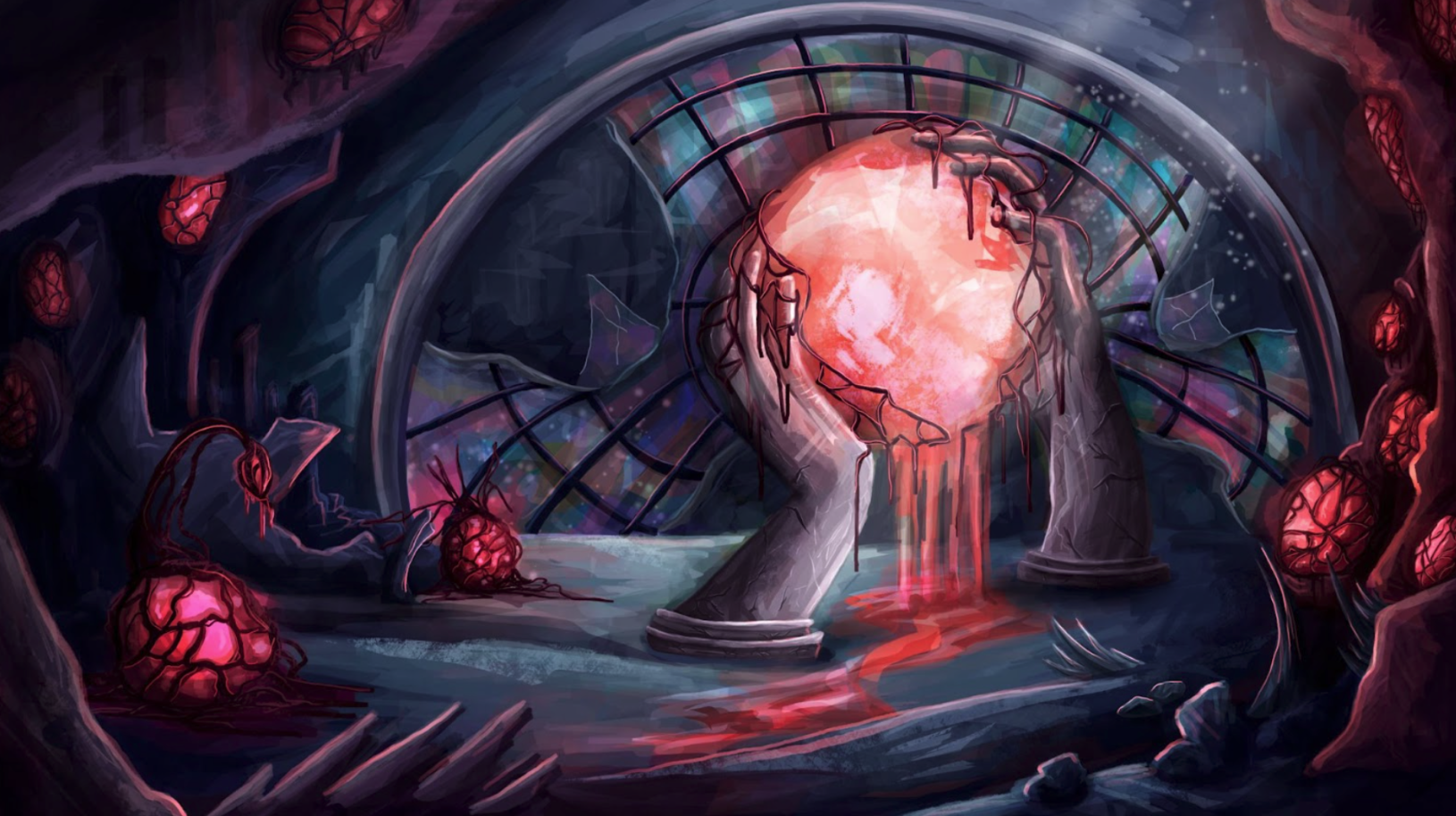
Background Illustration by Ashley Francis
Those who can’t adapt to the new difficulties posed by AI, alongside the pre-established pressures of pursuing a creative career, are often the ones you see pivoting. They get scared and run, deciding that a marketing degree or another “safe” path is a better choice. And when they leave, it gives credence to the doubts lingering in my head. These doubts only grow when I examine the bigger industry picture.
I see the mass layoffs at studios or look at the numbers, and notice that the industry is shrinking, even as more students than ever are studying film.
I start questioning: Is it even worth it?
Is my passion for the arts enough to fight off the onslaught of obstacles?
Should I pivot, accept the future, or fight against the use of AI, and whichever path I choose, how will it affect my chances of living a satisfying and fulfilling life?
Yet, it’s not all doom and gloom. Not everyone in my circle shares these same concerns.
I spoke to DioKio a popular instagram 2D animatior.
To my surprise, he holds a very different perspective. He remains unfazed by AI, stating:
“I don’t believe AI will ever be able to do what we do. Animation is about acting, after all, and it requires a true knowledge of human nature something I don’t think artificial intelligence will ever achieve.”
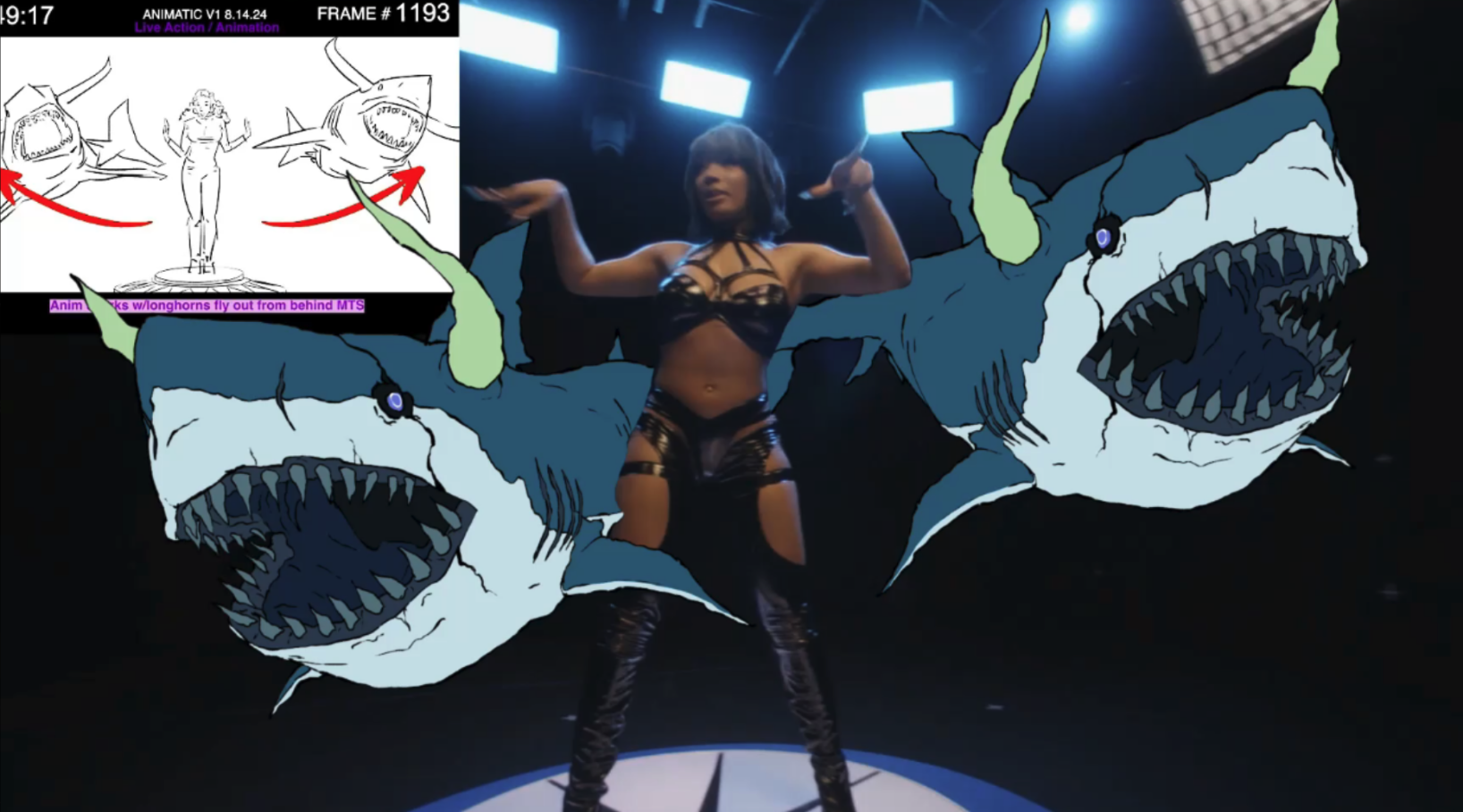
Still from Megan Thee Stallion’s music video Neva Play. Sharks animated by DioKio
His confidence gives me pause. His beliefs make me want to trust that AI cannot replace me, that there’s a sector of the creative industry this innovation can’t touch. But a part of me still worries. What if he’s wrong? What if AI can learn to effectively imitate what I’m dedicating my life to? And I know I’m not the only one wrestling with this tension. There’s been enormous pushback from artists and creatives online.
We’ve all seen it hell, even Motionographer has felt it. AI is an unknown variable, and it’s logical and valid to be afraid because this change is ultimately terrifying.
At the same time, I’ve come to a complicated personal truth. Deep down, through all my anxieties about AI, I can’t fully join the opposition. Because in my heart of hearts, I can’t see a world where AI doesn’t fundamentally change everything. I’m watching it happen already; the world is changing right before my eyes. And as much as I want to stand with the crowd vowing never to interact with AI, I can’t personally sacrifice my chance to learn a skill I believe will change the world.
Because no matter what I think, I refuse to be left behind in an AI-centric world. If my choice is between my dream career with AI or settling for something I couldn’t care less about in a world without AI, I have to choose the former. And I’m not alone. While many people are scared of AI and what’s to come, there are two sides to every coin, and artists worldwide see a different picture.
When asked, When you imagine your future career, how does AI fit into that vision or disrupt it? Kulin Mehta, a rising senior at Savannah College of Art and Design, said:
“At first, I thought AI was a disruption and that I might need a new career. But the more I explored it, the more fascinated I became. It already helps me debug code, find new approaches, and train my creative eye. It’s now part of my workflow—and I believe a good eye is what makes a creative stand out. AI can absolutely help with that.”
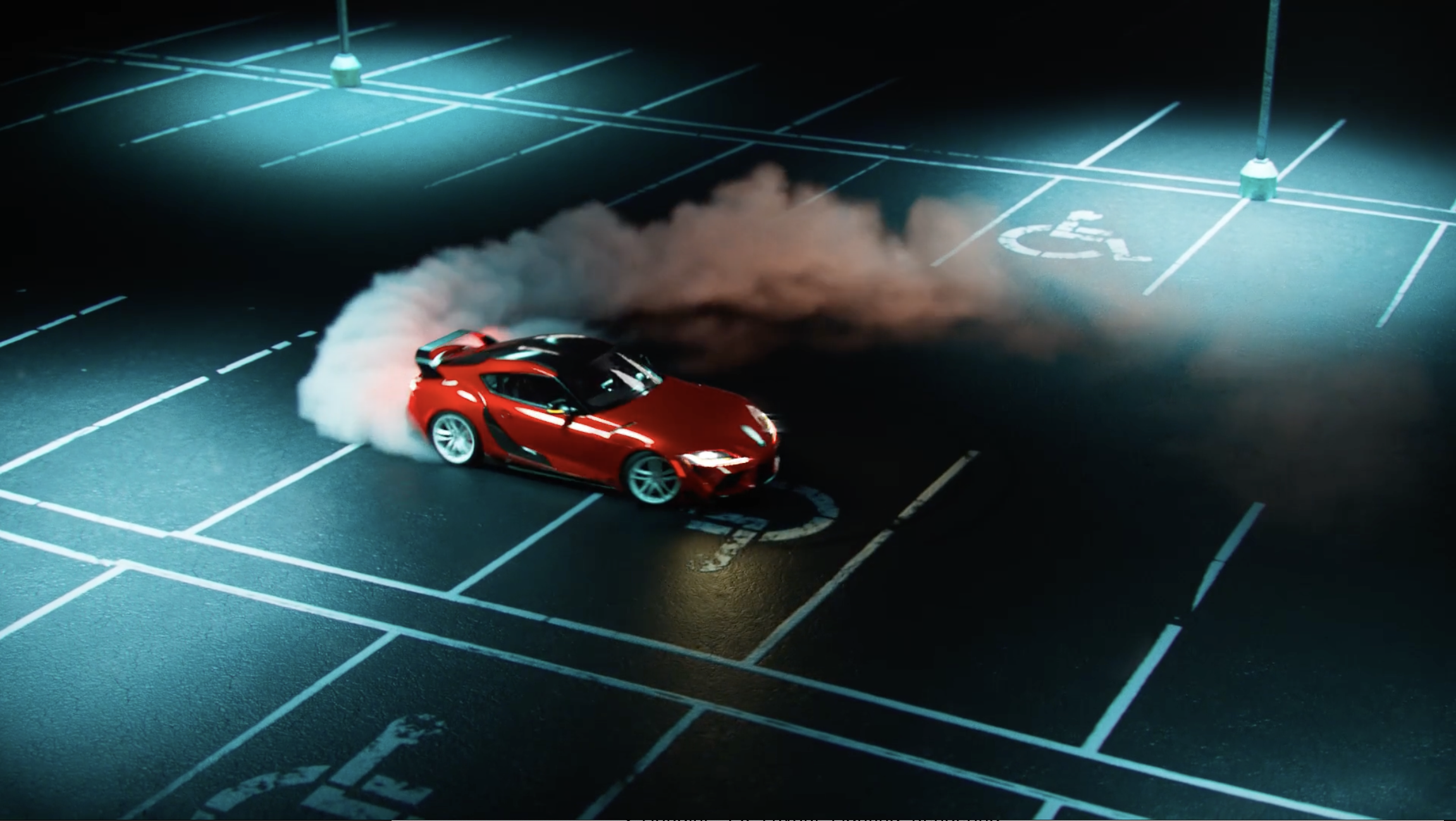
VFX Artist: Kulin Mehta
The best outcome is to see AI as a tool, not a replacement. Many of us believe we can’t afford to fall behind. We’ll have to become masters of AI as well as masters of our craft, because soon those two skills will be inseparable. Yes, it’s daunting. But this next generation of creatives has always been resilient. And if we want to keep creating, we have no choice but to keep moving forward.
Finally, in one of my many interviews to understand how the next generations of creatives feel, Ashley Francis raised a important point.
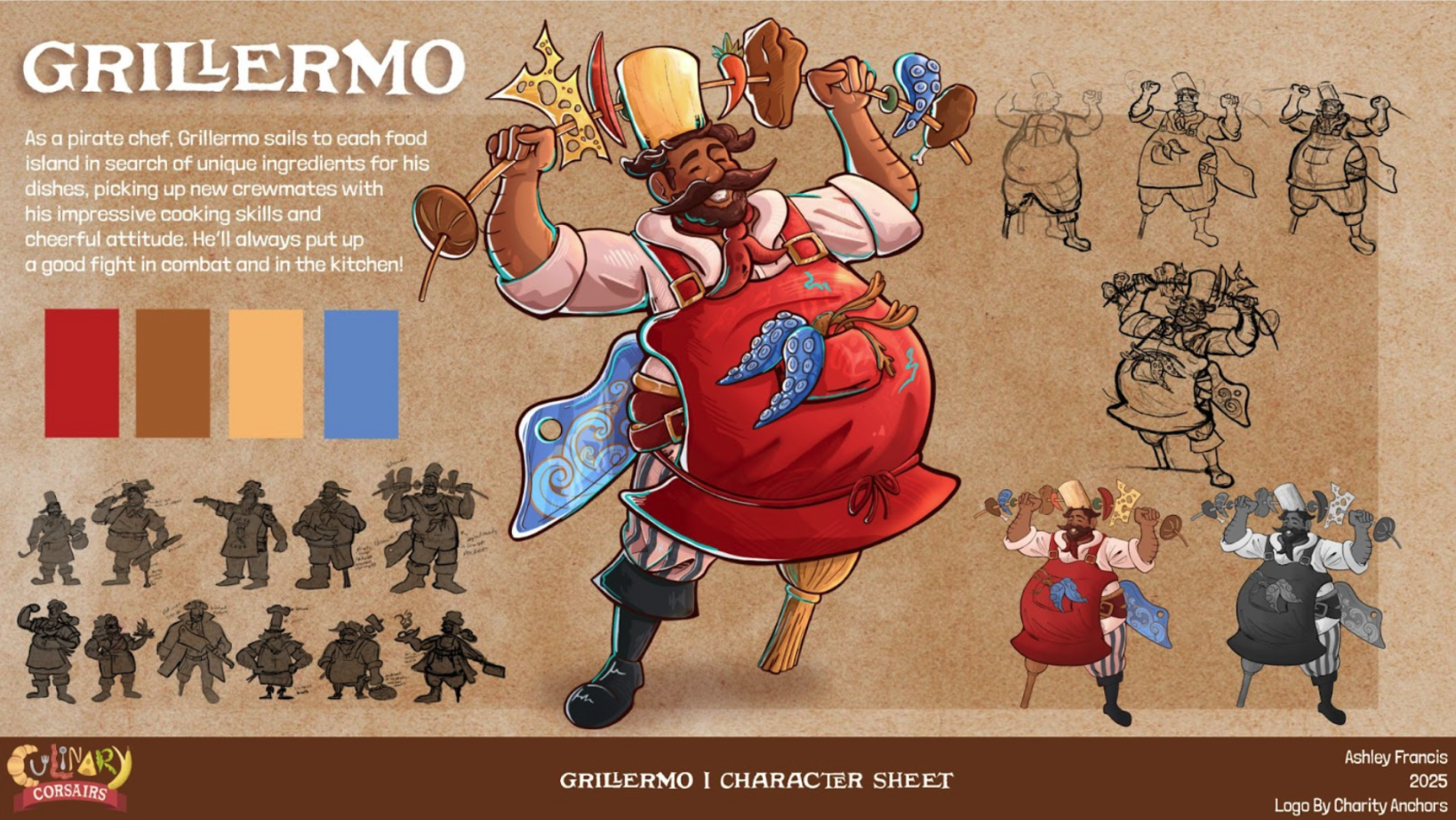
Character Sheet by Ashley Francis
Something that I wish more people would consider, especially those who have already “made it” in their careers:
“I wish older generations understood why we are so anxious about the rise of generative AI… A lot of people who’ve already grown into their careers especially non-artists don’t have the same perspective on the state of creative industries and the job market as a whole.”
She summed it up better than I ever could:
“We can teach ourselves anything, advertise on social media, and connect in ways that previous generations couldn’t. The accessibility of the internet is a blessing, but I do wish others understood how overwhelming it can be too… I’m still limited by the fact that I’m human. And I wish people saw human limitations, stumbles, and faults as something to be celebrated. Because it’s from these mistakes that real, impactful creativity is born.”




